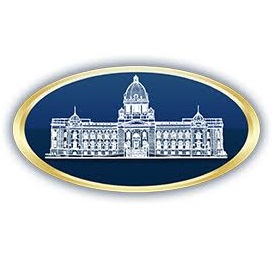
- This event has passed.
Study Visit 2016 to Serbia

Files
You can read here the full report of the Study Visit to Serbia.
The Study Visit, held once a year, is a combination of political dialogue and cultural meetings (with Parliamentarians, Government representatives, NGOs, academic and media representatives). This year the visit took place in Belgrade from September 25th to October 2nd. Members of the delegation had the chance to meet parlamentarians, members of the various political groups, officials of the government and representatives of civil society. An interesting trip to Novi Sad and Niš was also a highlight of the visit.
Report
The opportunity to talk with former Members of the European Parliament was an important and informative experience for me and my colleagues attending to this event. It was a special honor to meet representatives of this institution who have most directly influenced key processes evolving on our continent over the past decades. In the course of my studies I seldom had occasion to talk with decision-makers and persons who have witnessed and participated in major political processes, so that I considered this opportunity unique indeed.
I was very impressed by a number of things in this interchange. The dominant impression from the very outset was that of the candor and openness of the MEPs. It was exceptionally important for us to know and understand that we could ask them any question we wanted and really embark on a learning process about the significant elements of today’s European Union and the challenges it is confronted with.
As well, the conversation was dynamic, with a large number of the delegation members taking an active part. During the introductions we realized what a large number of countries the MEPs came from as well as that political differences existed among representatives coming from the same state. It was particularly interesting to hear the views of Greek representatives on the economic crisis and the UK representatives perceptions of Brexit.
The diverse positions of the MEPs were an important lesson about the functioning of the European Parliament. This patently reflected the democratic character of this institution as well as the fact that MEPs represent their citizens and not necessarily the politics of their respective states or ruling parties.
Apart from this, the questions were addressed to the group as a whole so that, as a rule, MEPs who thought themselves called upon to answer a specific question would reply. It was interesting for us to hear how persons with their experience viewed the process of Serbia’s European integration and the fact that we have a specific Chapter 35, account being taken of the on-going process of dialogue between Belgrade and Priština. The importance was stressed of reforms under Chapters 23 and 24 as well as generally within the process, as a mechanism aimed at improving the lives and enhancing the development potentials of primarily young people, but also of all other citizens of Serbia.
The issue of refugees and the manner in which the European Union was addressing this challenge were also discussed. We heard different opinions in this regard but the shared position of all was that a common solution and a well-thought-out systematic approach were necessary. Particularly impressive was the united stand on the issue of MEPs from Belgium, The Netherlands, France, Greece, Cyprus and Spain, even though they occupy opposite ideological positions in other respects.
The question of sanctions against Russia was also broached, prompting a discussion on the need for aligning the foreign policies of EU member states and on possible expectations from future members
The question of Kosovo was particularly emphasized, as a number of colleagues wished to know if recognition of its independence was a precondition for Serbia’s accession to the European Union, especially bearing in mind the fact that a number of EU members have not recognized this state. The prevalent answer was that what mattered the most was to honor the agreements reached in the dialogue between Belgrade and Priština. Generally, the openness and directness of the MEPs in communication on this as well as on all other topics was my principal impression.
Another issue that was discussed was the possibility for young people from Serbia and the region to be educated and find employment in the European Union, with focus on Erasmus programs and the European Voluntary Service. Experiences were shared that will certainly assist me in my future efforts at continued personal and professional development.
Stefan Vukojevic, University student, Serbia
